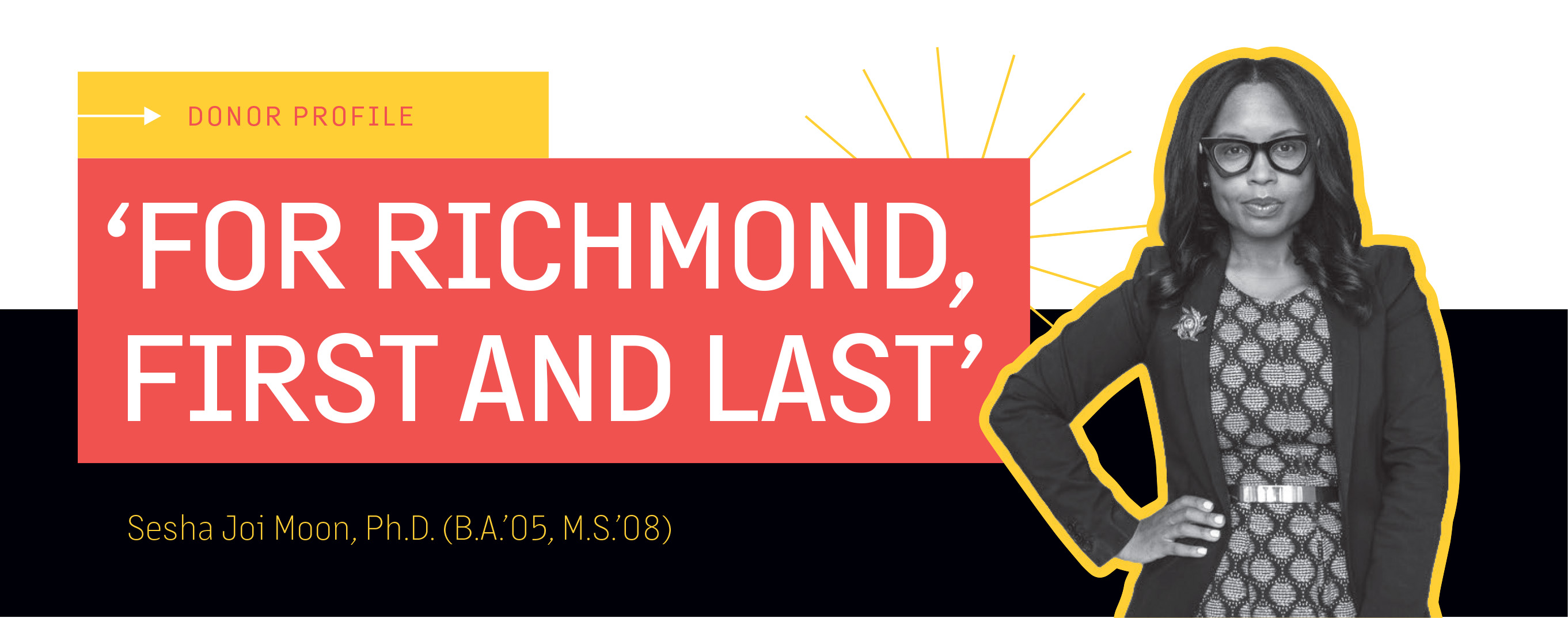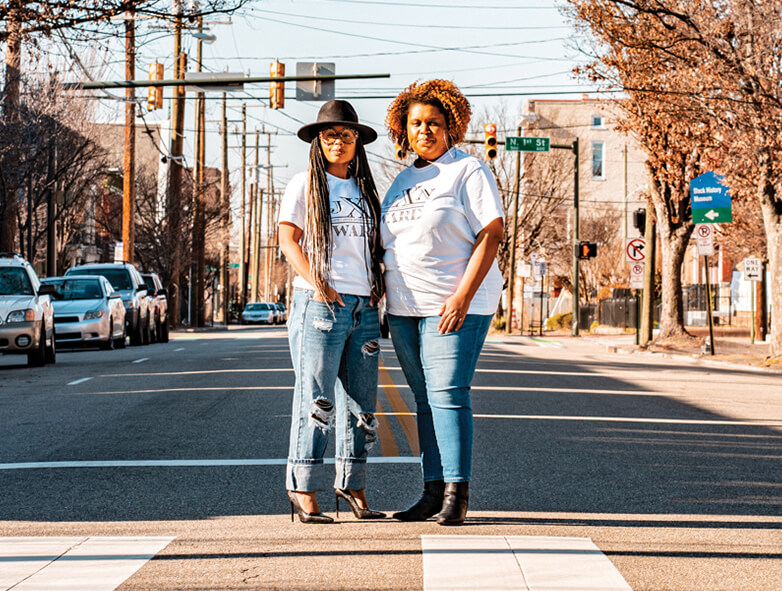
'For Richmond, First and Last'
Sesha Joi Moon, Ph.D. (B.A.’05, M.S.’08)
Before she became a leader of diversity, equity and inclusion efforts on Capitol Hill, Sesha Joi Moon, Ph.D., served as a student leader at VCU and became one of the first students to earn a degree from the Department of African American Studies at VCU’s College of Humanities and Sciences.
It was one of many moves she’s made that she says “allowed me the opportunity to hold space for underserved communities” — work Moon has been doing ever since.
Now Moon wants to help others find their voice at VCU through the Dr. Sesha Joi Moon Endowed Scholarship, a scholarship that financially supports undergraduate and graduate students with demonstrated need from the College of Humanities & Sciences’ Department of African American Studies and the Wilder School.
A visit to her family’s home in Georgia illuminated new insights about her family history and set the gift in motion.
“I was asking how my great grandfather got to Richmond, and they were saying he would bring family members out of Georgia to go to Virginia State University or Virginia Union University,” Moon said. “I thought, ‘wow, I couldn’t have had VCU without VSU and VUU.’” Moon comes from a long line of Richmond-area grads on her maternal side, including her mother Dr. Michon Moon (B.A. ’95, M.P.A. ’97, Ph.D. ’11).
That realization, coupled with $200,000 of her own student debt being forgiven after a decade of public service, encouraged Moon to pay it forward. “That’s why me and my family were very intentional about creating scholarships at VCU, VUU and VSU — to honor the legacy of my family while also honoring the legacy of the next generation. It’s this intersection of past and present, and trying to help whoever needs it next.”
Moon felt that it was equally as important to honor her paternal side by ensuring that the scholarship carried her father’s last name, the late Mr. August Moon, a Richmond native, U.S. Navy veteran and well-respected artist and activist across the city. Recipients of the scholarship must demonstrate how they are contributing to the legacy of marginalized students in the fi elds of African American studies, government or public affairs — areas of study that lay close to Moon’s heart.
In the summer of 2022, Moon was named the director of the U.S. House of Representatives’ Office of Diversity and Inclusion. The Richmond native’s newest role comes after a career leading human resources and diversity, equity and inclusion efforts in several branches of government. Since graduating with a B.A. in African American studies in 2005 and an M.S. in criminal justice with a concentration in human resources management from the L. Douglas Wilder School of Government and Public Affairs in 2008, Moon also served as the inaugural chief diversity officer at the National Institute of Standards and Technology, among other roles with the U.S. Department of Commerce. She earned her Ph.D. from Old Dominion University in 2013.

The experience that led Moon to Washington extends well outside the 9-to-5 workplace as well. In 2021, Moon co-founded The JXN Project with her sister Enjoli Moon, an assistant curator of film at the Institute of Contemporary Art at VCU — an award-winning project the two created to educate others on the history of Richmond’s Jackson Ward, the first Black urban neighborhood registered in the National Register of Historic Places, and its significance in American history.
Moon still credits Richmond and VCU with shaping her worldview today. “There’s a well-known saying — ‘I am for Richmond, first and last’ — and that’s a core value that I hold near and dear, both as a person and as a professional,” said Moon. “So, if anything, I’d just like to say thank you to my hometown because, without it, there would be no me — and therefore I try my very best to take Richmond into every room with me.